Accounting Information System Assignment - KPIs and Scorecards
VerifiedAdded on 2020/04/13
|6
|719
|124
Homework Assignment
AI Summary
This assignment delves into the realm of accounting information systems, focusing on business process innovation, business process management, and the tools used to measure their effectiveness. The student's work defines business process innovation and its role in enhancing operational performance, contrasting it with business process management's systematic approach to efficiency and adaptability. The assignment then explores performance measurement tools, specifically the balanced scorecard and key performance indicators (KPIs), and demonstrates how they are used to assess the success of innovation strategies. It provides examples of how organizations establish goals and use the balanced scorecard to evaluate perspectives like product development time and new product contributions. The assignment clarifies that business process management and innovation utilize these performance measurement tools, and are interconnected. The references include sources that support the concepts of business process management, innovation, and related performance measurement techniques.
1 out of 6

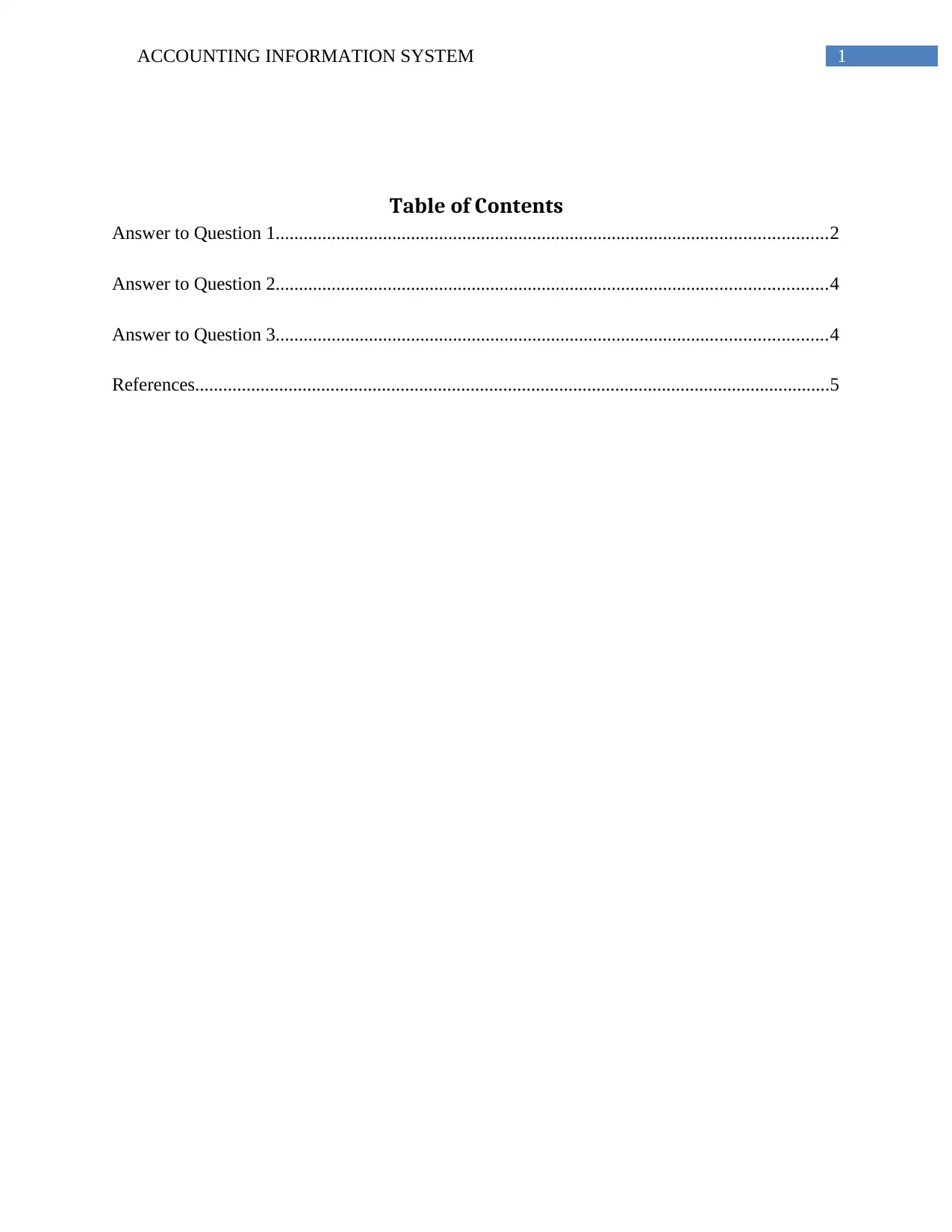
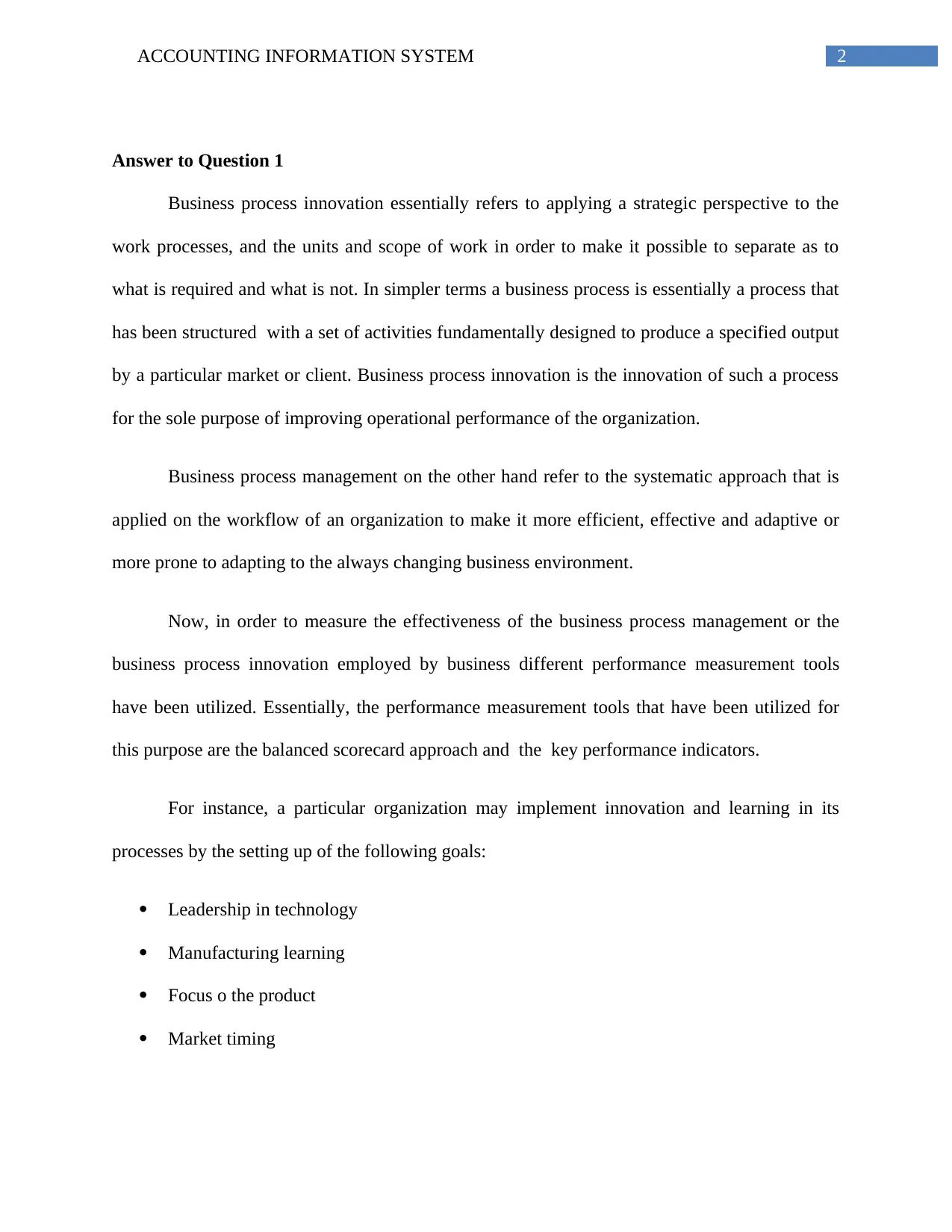

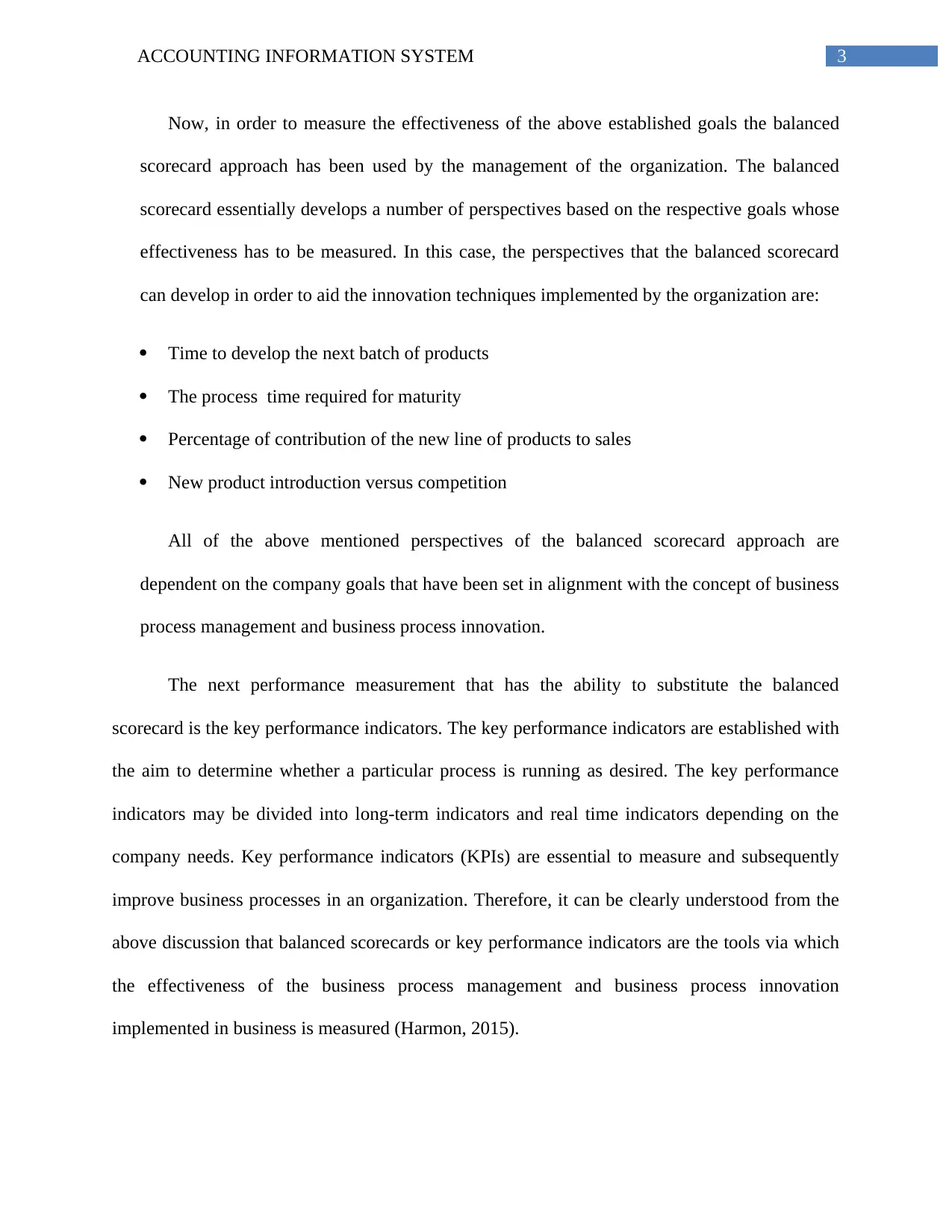
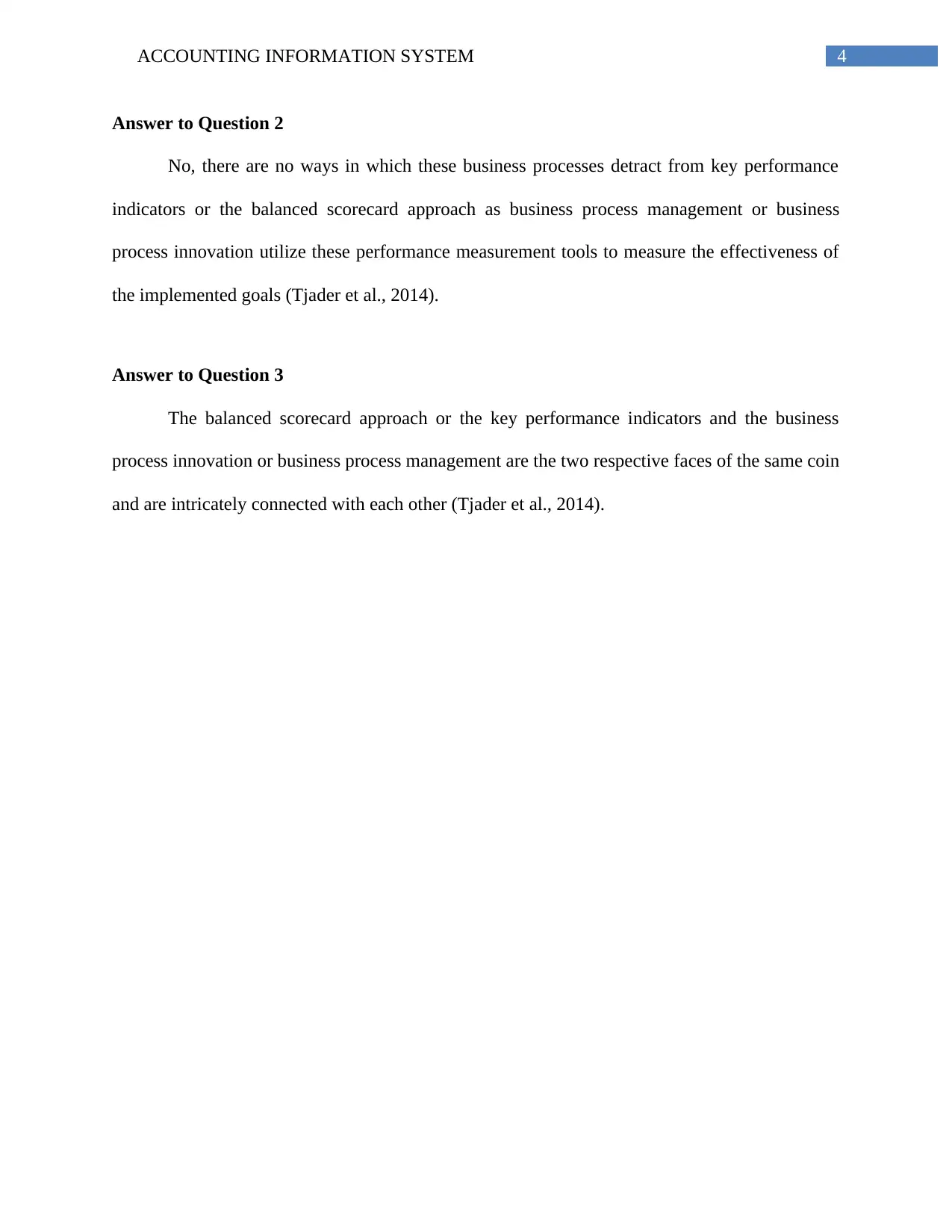
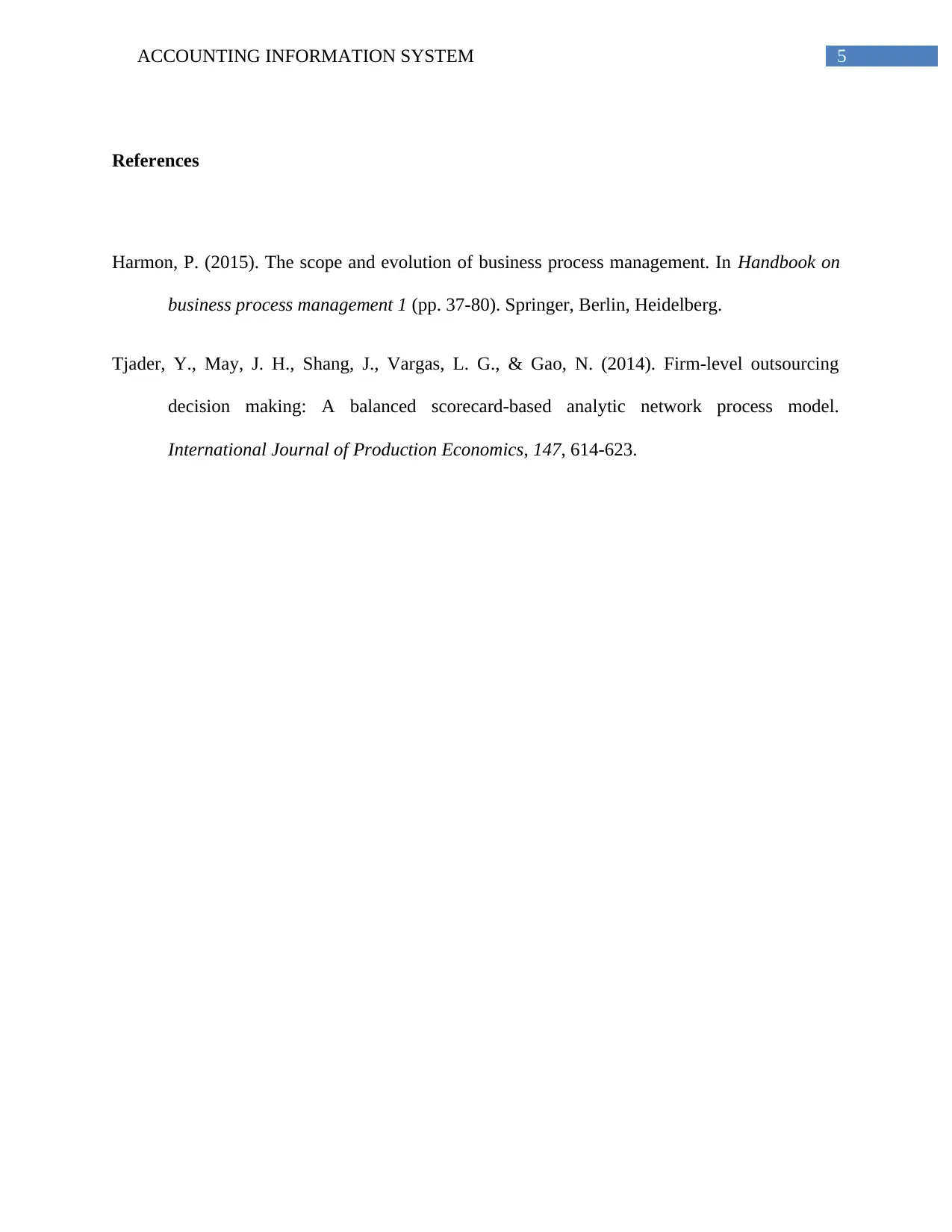





![[object Object]](/_next/static/media/star-bottom.7253800d.svg)